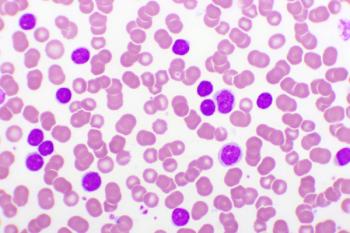
Pediatrics
Latest News
Latest Videos

CME Content
More News

A recent study found a decline in early-onset group B streptococcus infections and deaths in newborns after prenatal screening recommendations were updated in 2019.

A study found that increased midpregnancy uterine artery resistance may slightly impair executive function in offspring.

A new ACOG clinical guidance offers updated recommendations on umbilical cord management for preterm births based on recent evidence and analysis.

A new study finds that infections such as chlamydia, gonorrhea, and syphilis during pregnancy significantly increase the risk of stillbirth, preterm birth, and low birth weight.

Women with hypertensive disorders of pregnancy are more likely to never start or stop breastfeeding early, according to a recent study.

Review some of the top stories from the Contemporary OB/GYN website over the past week and catch up on anything you may have missed.

A national study reveals that fewer than 1 in 3 children with hepatitis C receive care, with significant gaps linked to race, region, and age.

A new study finds first-trimester trimethoprim-sulfamethoxazole use increases the risk of congenital malformations compared with β-lactam antibiotics.

Getting a flu shot while pregnant significantly reduces the risk of severe illness for the mother and cuts the infant’s flu risk by 44% during the first 6 months of life.

A large Swedish study reveals a 21% higher risk of acute lymphoblastic leukemia in children born via planned cesarean section compared to vaginal delivery.

A recent randomized trial found no significant improvement in birth weight or key birth outcomes from antenatal trimethoprim–sulfamethoxazole prophylaxis in human immunodeficiency virus-positive pregnant women.

A large European study finds that exposure to fine particulate matter during pregnancy may increase the risk of childhood overweight and obesity, especially in children aged 9 to 12 years.

Review some of the top stories from the Contemporary OB/GYN website over the last week, and catch up on anything you may have missed.

A new study finds that exposure to mycoestrogens during pregnancy may reduce birthweight and impair placental efficiency, with climate change expected to increase exposure risks.

In a recent study, prenatal PFAS exposure was linked to higher adolescent blood pressure, with stronger effects in boys and children born to non-Hispanic Black mothers.

A new study reveals that children born to mothers with high blood pressure during pregnancy face a significantly increased risk of seizures, potentially because of brain inflammation.

The American Academy of Pediatrics urges clinicians to offer confidential, adolescent-centered contraceptive care using evidence-based, equity-informed approaches.

A study of adolescents with pathology-confirmed endometriosis reveals common symptoms such as progressive dysmenorrhea and heavy bleeding.

A new study shows extrauterine cerebellar ultrasound is a reliable, low-cost method to assess gestational age after fetal or neonatal death, especially in low-resource settings.

Vaccinating pregnant women at least 5 weeks before delivery significantly improves transplacental transfer of respiratory syncytial virus antibodies, offering better early protection for infants.

Maternal avocado consumption during pregnancy was linked to significantly lower odds of infant food allergy at 12 months.

New research shows that girls who eat healthier during childhood may start their periods later, potentially lowering their risk for chronic diseases such as diabetes and breast cancer.

A new study reveals significantly increased emergency department visit rates in the first year of life for infants born to women with physical, sensory, or developmental disabilities.

A new study from Cincinnati Children’s Hospital reveals that preterm infants exposed to maternal hypertension face higher risks of brain abnormalities and delayed cognitive development.

Primary care interventions, such as education and support, effectively promote breastfeeding up to 6 months, improving rates of any and exclusive breastfeeding, according to the USPSTF.


















